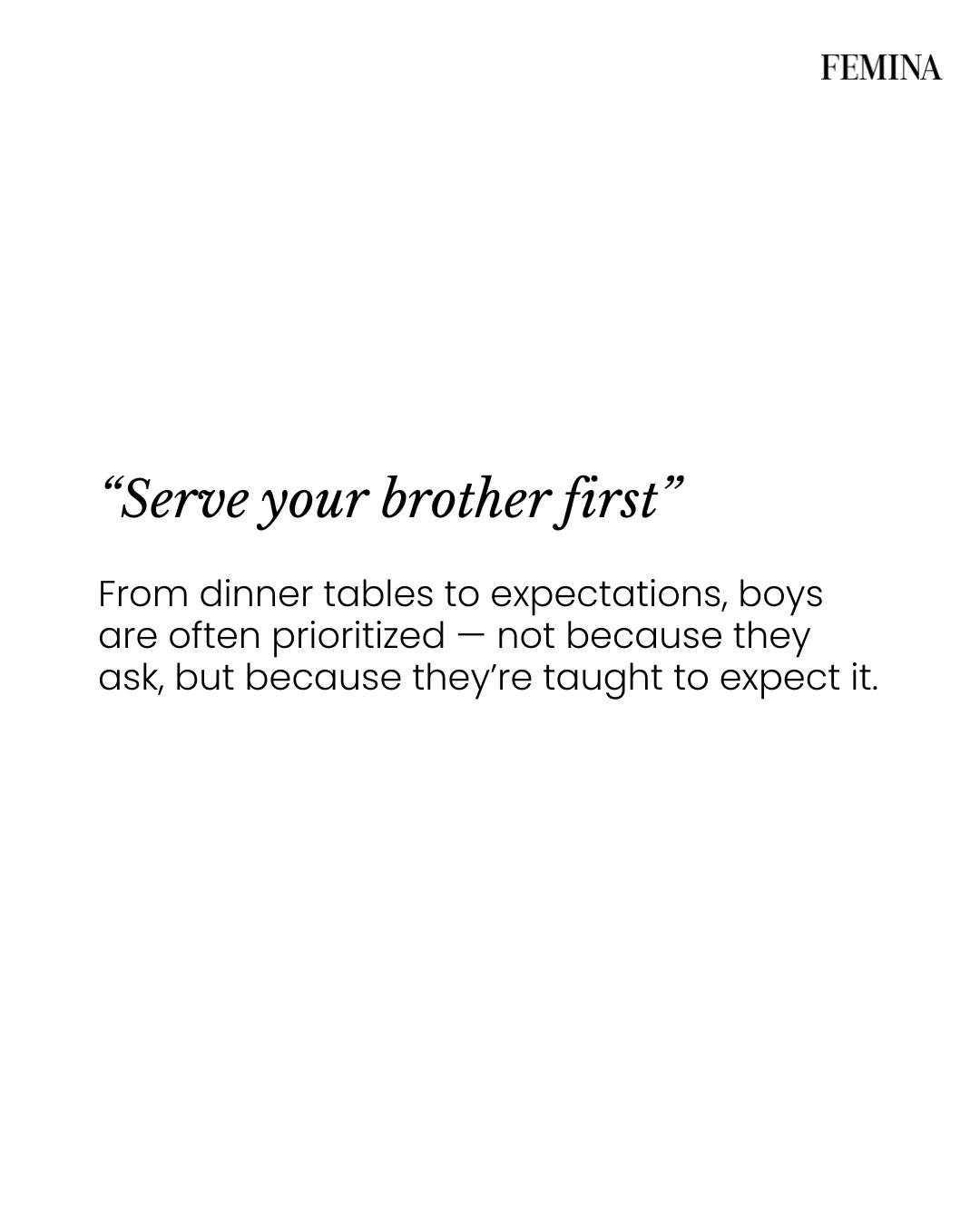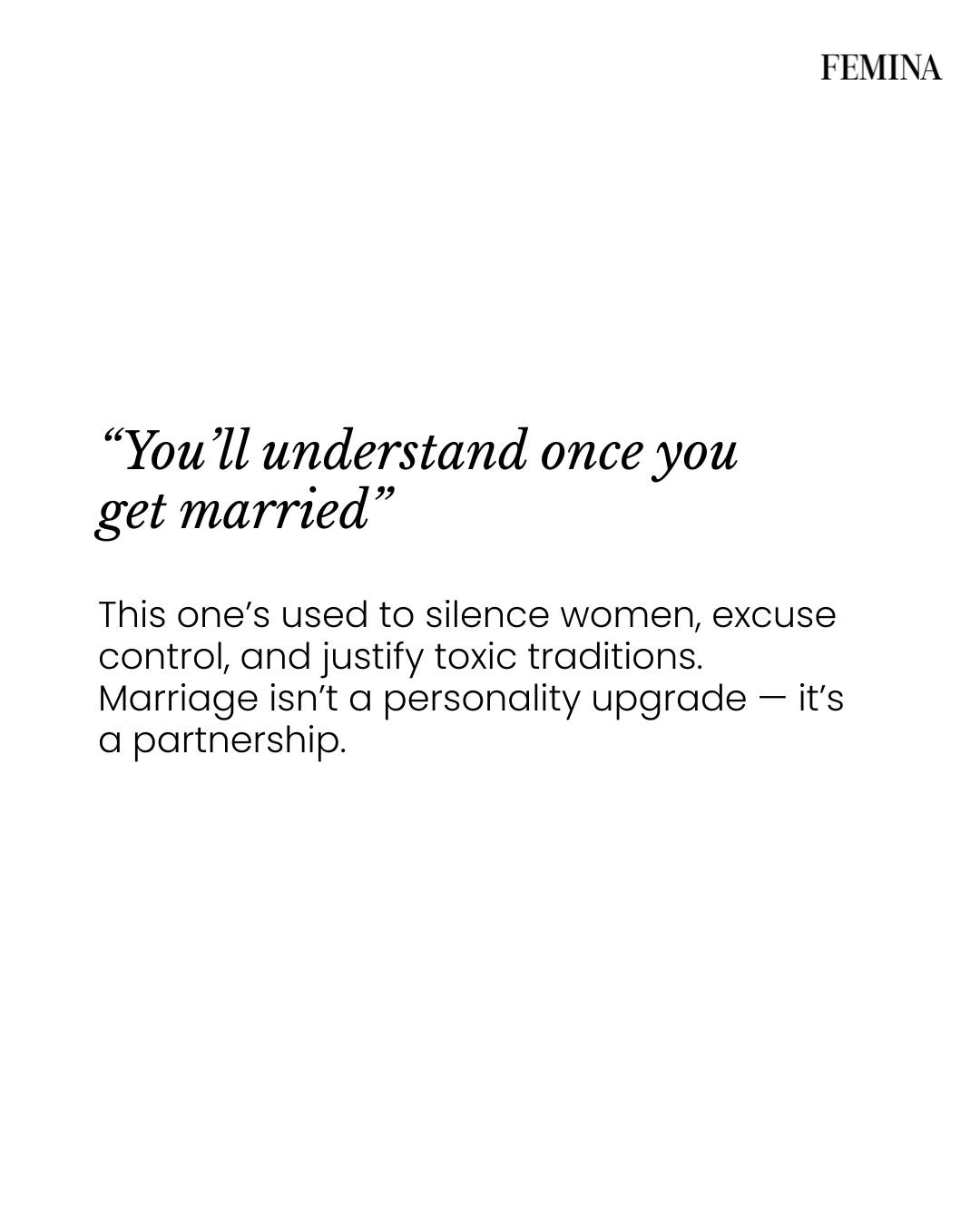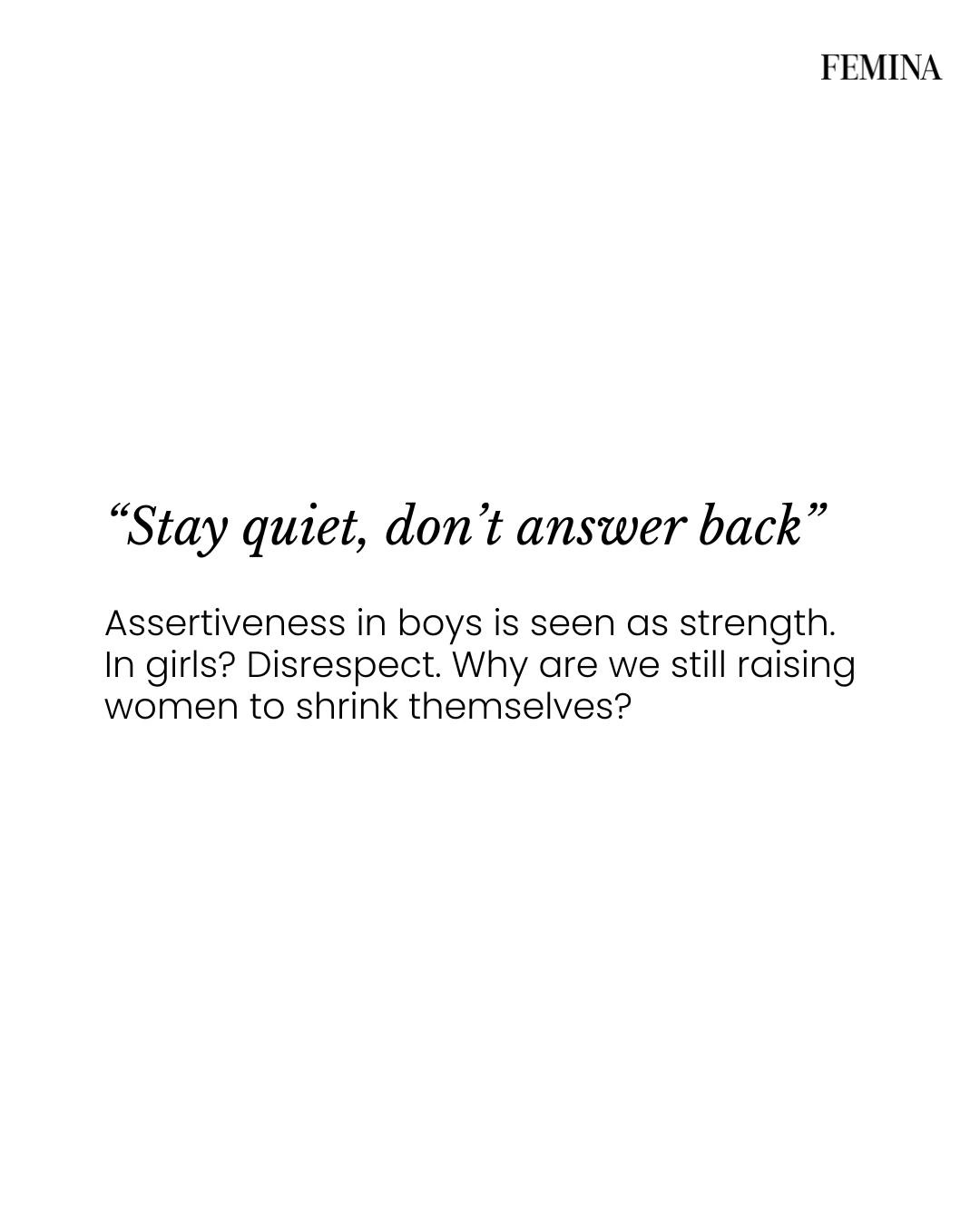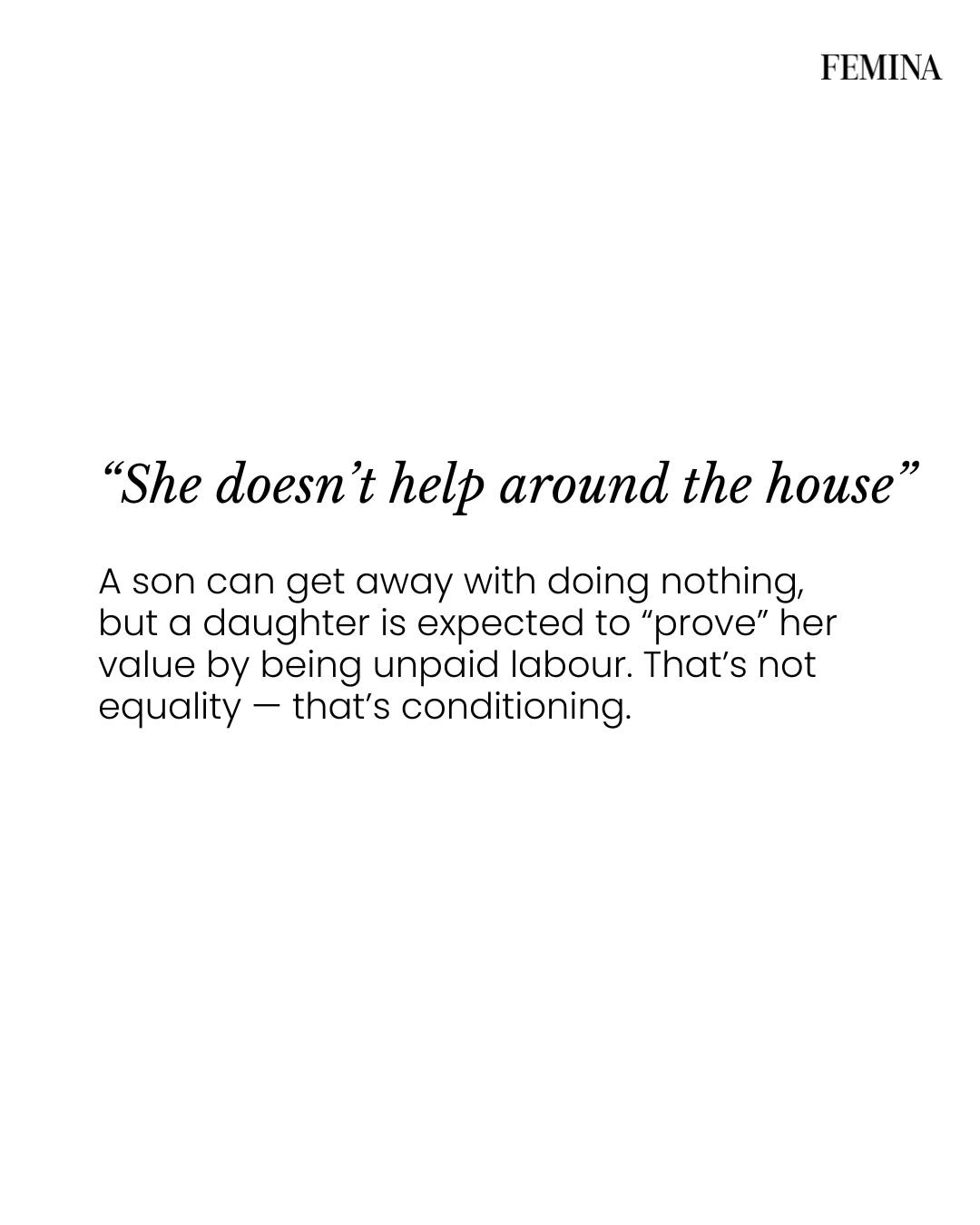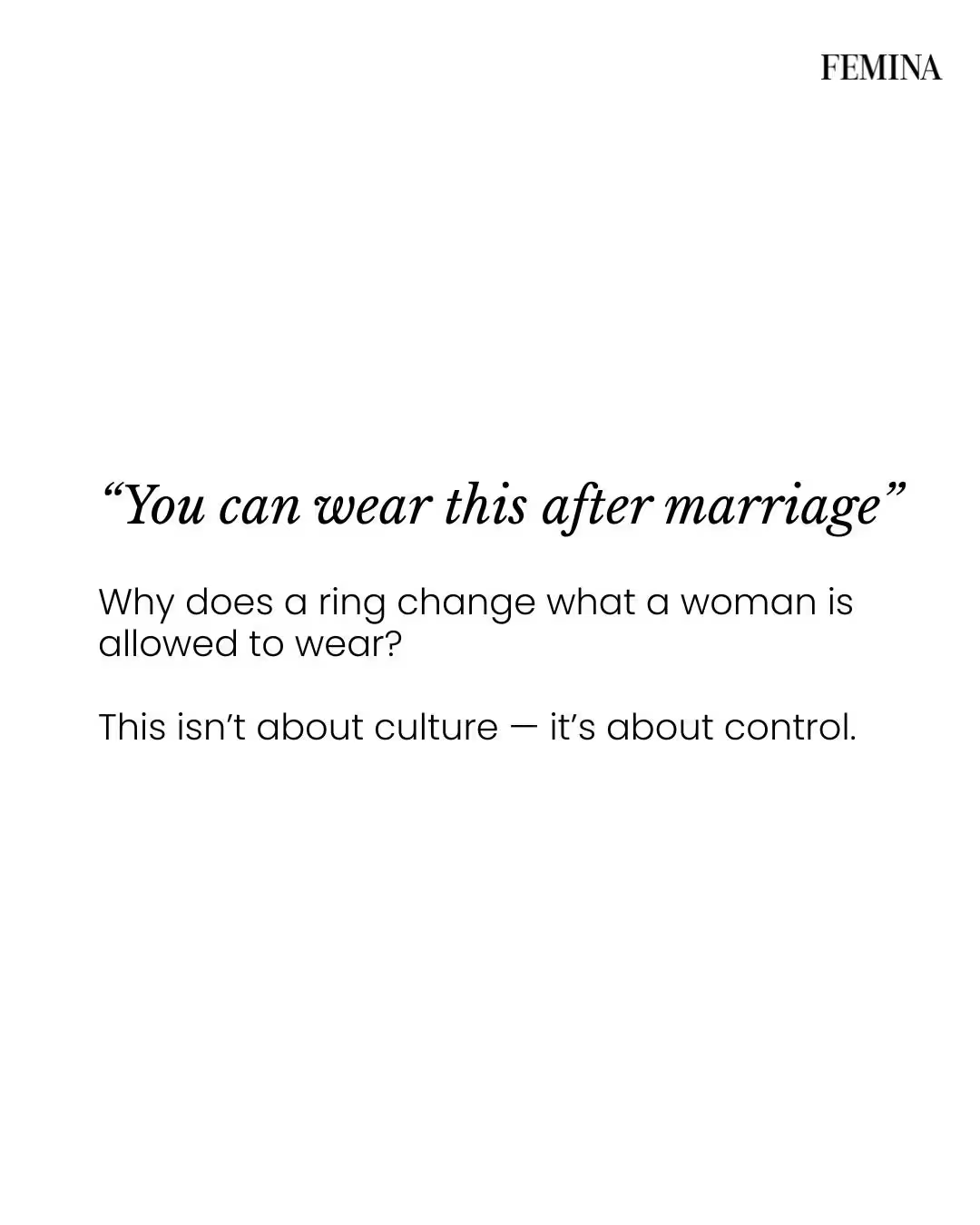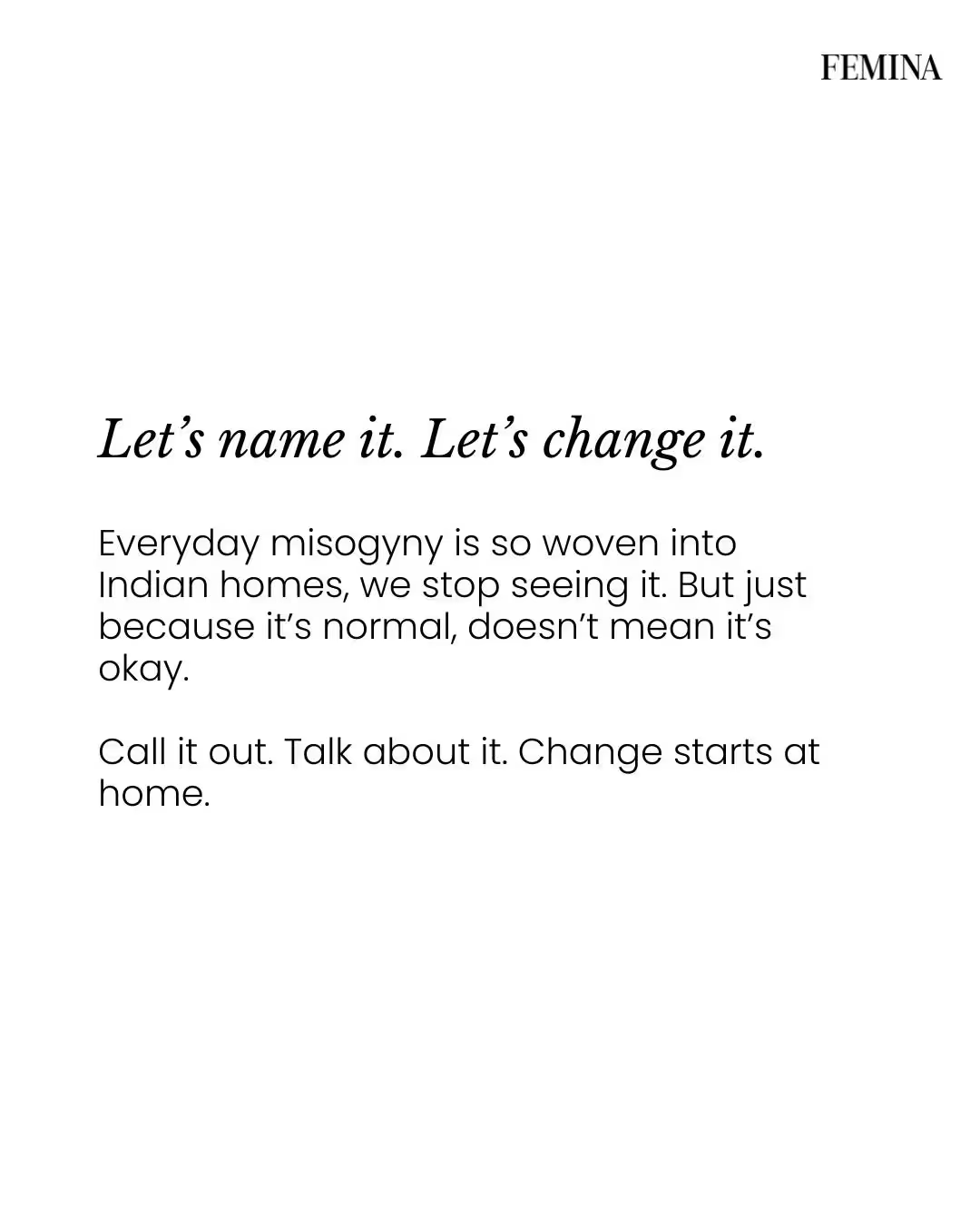Everyday Misogyny In India
Femina spotlights how everyday home biases undermine women's confidence and rights at home.

Image: Instagram
Everyday misogyny in Indian homes does not always manifest as overt hostility. Instead, it often arrives quietly in the form of offhand comments and well-meaning rules that have long been considered normal. Femina, a leading voice in women’s empowerment, has brought attention to these subversive yet damaging narratives. In one of its recent posts, the popular magazine highlighted how small, casual remarks—ranging from being told to serve one’s brother first to instructions about saving specific clothes for after marriage—begin to shape the self-perception and worth of women.
Femina has long been at the forefront of discussions surrounding gender roles in India. With a rich legacy that spans decades, as noted in historical references and its influential presence in popular culture, the magazine has used its platform to challenge outdated norms and spark thoughtful conversations around women’s rights. Its recent campaign against everyday misogyny asks a simple but vital question: Why are we so willing to brush these biased comments off as mere cultural idiosyncrasies when they have such a profound impact on self-esteem and equality?
Everyday Examples
In many Indian households, traditional roles are often imposed without question. For instance, a sister might be reminded to serve her brother first at family gatherings or be discreet about her opinions and actions. Such comments, while not shouted, can cumulatively erode a woman’s sense of agency. These subtle messages enforce a hierarchy that places male needs and opinions at the center, and portray female traits as secondary or subordinate. The post by Femina encapsulates this sentiment by urging families to recognize that the tone and intent of these remarks matter just as much as overt discrimination.
Everyday examples are not limited to familial settings. Often, these ingrained ideas extend to social environments and even influence professional dynamics. When women are subtly instructed to play a quieter role or behave in a certain way, it reinforces a cycle of diminished opportunities and self-doubt. Several influencers and commentators have echoed Femina’s concerns, noting that even as India modernizes, some archaic customs persist in everyday interactions. The message is clear: the change begins when we call out these everyday biases, no matter how small they may seem.
Voices Calling For Change
Femina’s campaign is significant as it tackles the notion that such misogyny is something to be tolerated or simply a cultural norm. By using clear and relatable examples, the magazine has managed to start conversations across social media platforms, where many have begun to share their personal experiences of casual but persistent gender bias. These stories, often shared through personal blogs, online groups, and additional Femina posts, are building a ground-up call for equality.
The dialogue that Femina has opened is not just about pointing fingers. It is about understanding that these subtle messages, when left unchecked, have lasting effects on women’s confidence, self-esteem, and ambition. Not to mention, these practices also affect how the next generation perceives the roles of men and women. Social media comments, often dismissed as ‘just banter’, contribute cumulatively to a system that values tradition over fairness. As more women begin to highlight these issues, there is growing pressure on both families and institutions to rethink long-held beliefs.
The Ripple Effect In Society
As Femina continues to spark debate, the campaign underscores a broader societal awakening. It is no longer acceptable to excuse everyday remarks simply on the basis of tradition. Why should a comment that may seem inconsequential to one person become a barrier to another’s potential? The conversation has also reached academic circles and policy makers who are increasingly aware that subtle misogyny is part of a larger ecosystem of gender inequality. Studies have suggested that such everyday biases contribute to a perpetual undervaluing of women’s contributions, both at home and in the workplace.
Drawing from its illustrious history—Femina has not only celebrated fashion and celebrity culture but has also taken a firm stand on social issues—it now uses its vast platform to empower women to reframe their narratives. Social media has played a huge role in amplifying these voices. The posts tagged #FeminaTalks and #Misogyny have resonated with audiences across the country, further solidifying the necessity of addressing these concerns head-on.
By challenging the norm, Femina’s initiative helps dismantle the layers of subtle discrimination that have long been taken for granted. While the journey to complete equality is long and winding, each conversation started, each comment questioned, and every personal story shared contributes to a collective push for a more egalitarian world. These efforts remind us all that sometimes, even the smallest voice can spark a meaningful change.
The call is loud and clear: it is time to stop normalizing casual misogyny. The change begins when every individual recognizes that language and actions have power—and when archaic practices are questioned. In a country on the cusp of modernity, such reflections are essential for ensuring that progress is both inclusive and respectful of every citizen’s worth.
Read full bio of Glendon Moss


